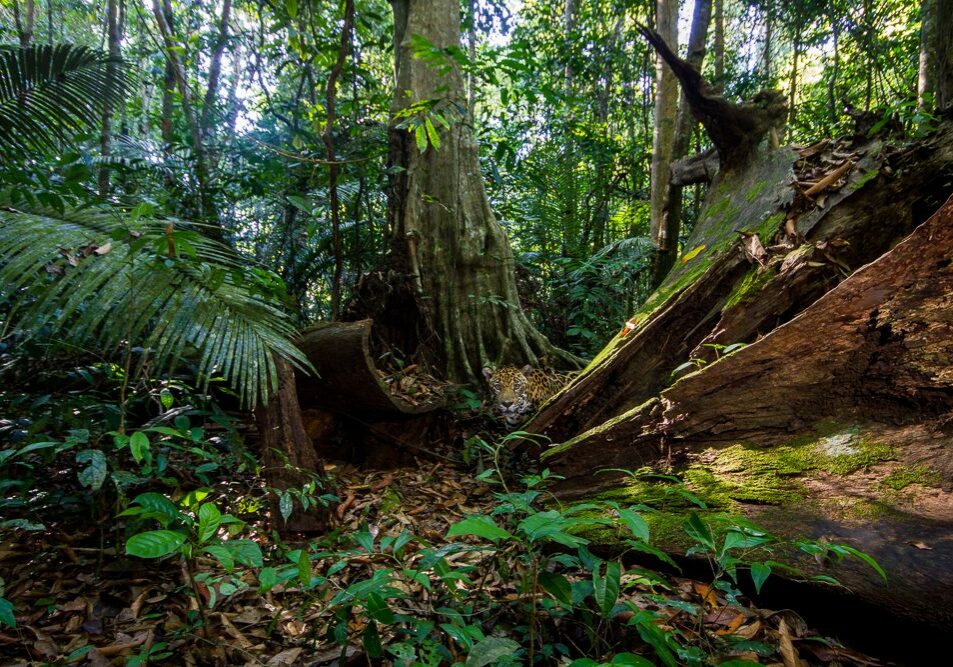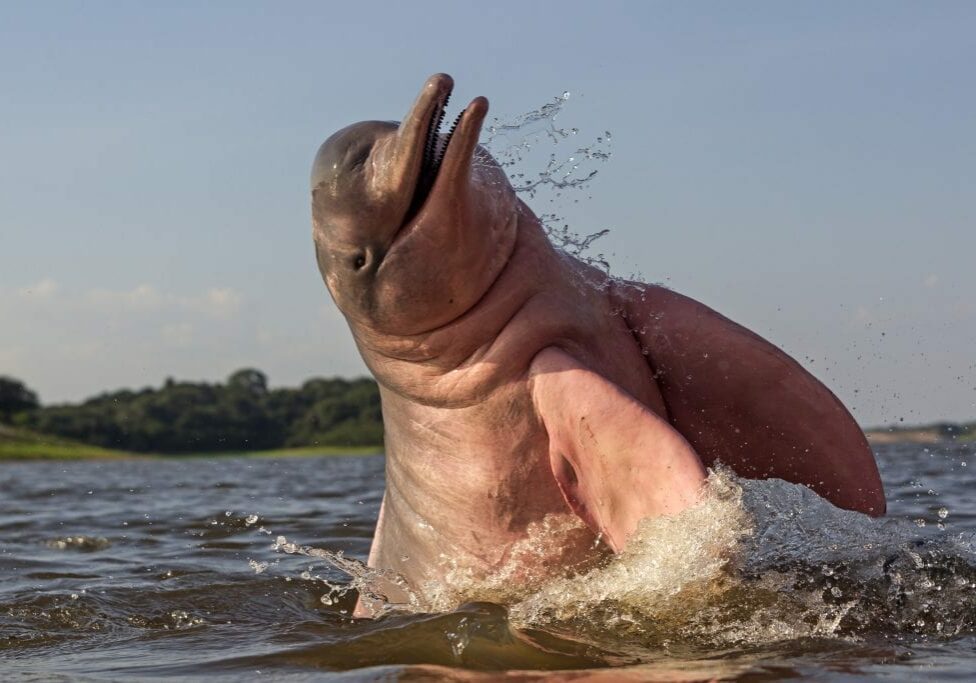With your support and generosity in response to our spring 2021 appeal, researchers in Colombia have carried out a 10-day expedition to gather important information on endangered pink river dolphins and their habitat.
The 20-strong team of researchers, supported by WWF-Colombia, cruised over 400km of the Guaviare river, where the plains of the Orinoco meet the Amazon rainforest. It was the first scientific expedition looking at river dolphins since the outbreak of the pandemic, as Covid shut down conservation research across South America.
Until recently, the pink river dolphin (Inia geoffrensis) or boto was officially classified as data deficient on the IUCN Red List of Threatened Species. The most widespread species of river dolphins, it is thought to number in the tens of thousands, but we simply didn’t know enough to make an informed judgement on its conservation status.
Then in 2018, the boto was listed as endangered on the Red List. Dams, overfishing, deforestation and pollution have all taken a toll on the rivers it inhabits. Finding out more about this mysterious creature and the state of its habitat is crucial if we’re to ensure its long-term future.
During the trip, the researchers made 188 observations of pink river dolphins. They also fitted a satellite tag to an adult female that will track her and her calf’s movements. The satellite transmitter will provide essential information about the dolphins’ travels and the habitats they use, including for reproduction and rearing their young.
Thanks to your support, and with the help of local fishers, researchers in Colombia have now tagged a total of 16 river dolphins. This is transforming what we know about Amazon river dolphins, and helping us identify areas where protection is most urgently needed.
Tagging river dolphins
The expedition was a great opportunity to study the health of river dolphins and other fresh water species. The tagged female and calf will continue to provide valuable information on dolphin habitats and behaviour. (Images best viewed in landscape orientation on mobile devices.)
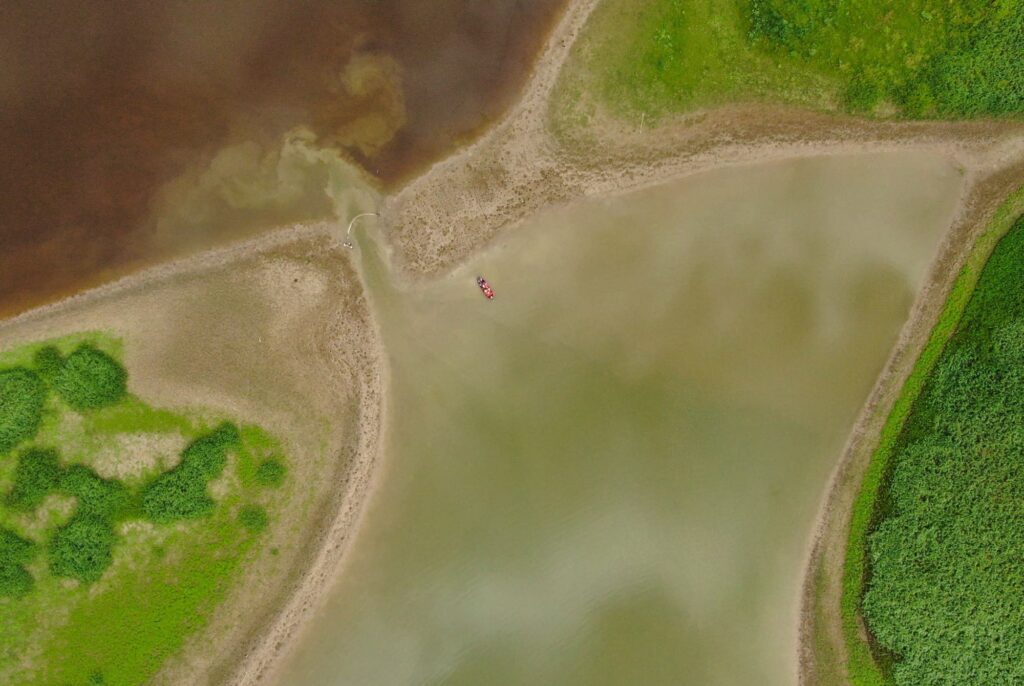
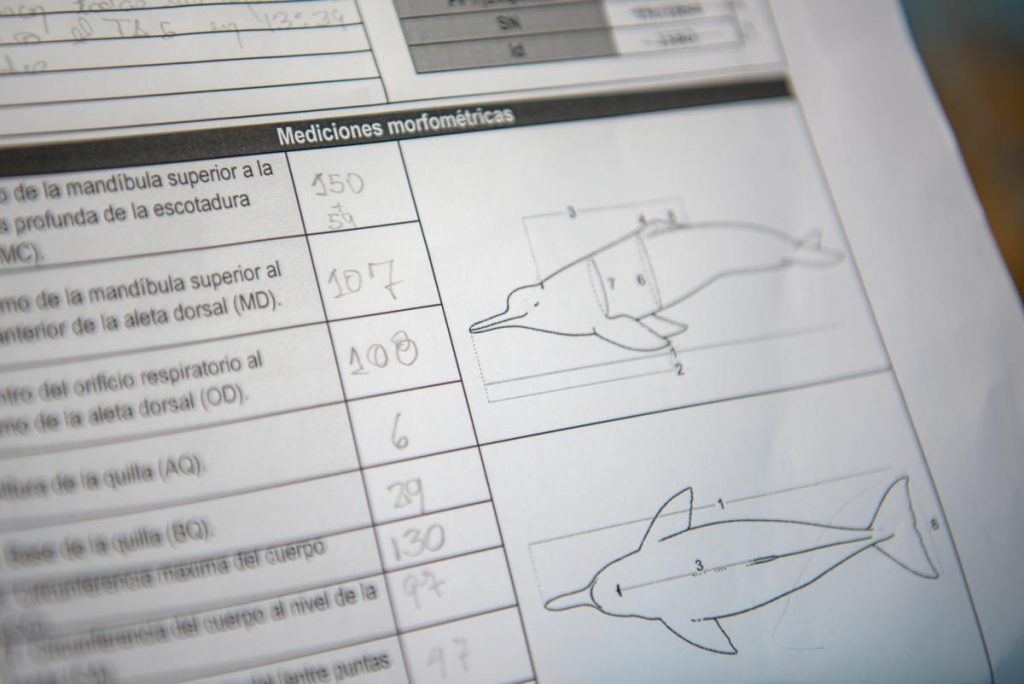
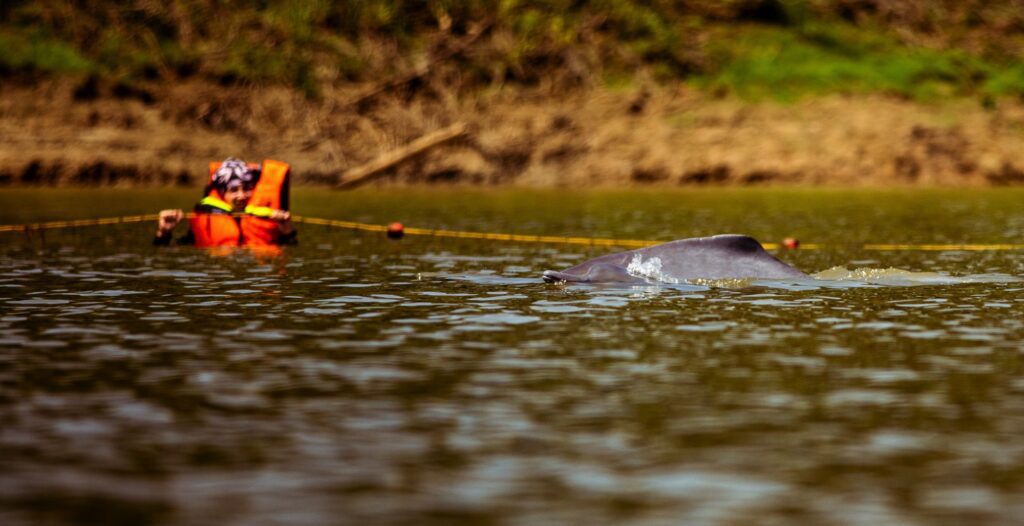
One of the threats facing dolphins and their habitat is mercury poisoning from illegal and poorly regulated gold mining. The researchers took tissue samples from the dolphin and her calf as well as 72 fish from different species to detect the presence of mercury.
By sharing this data with the local environmental authority, we’re hoping to improve understanding of the impact of mercury on ecosystems and local communities and develop steps to tackle it.
The researchers also analysed other freshwater species on a stretch of river that was out of bounds for decades because of armed conflict in Colombia. Preliminary data identified 200 species of plants, 313 freshwater macroinvertebrates, 74 types of fish, nine amphibians, two reptiles and five bats.
“It’s very important we maintain our efforts to broaden our knowledge of river dolphins and develop actions that ensure their conservation and that of their habitats,” explains José Saulo Usma from WWF-Colombia, one of the scientists who led the expedition. “If their numbers are decreasing, it’s important to establish and address the causes to mitigate them and help populations recover.
“This new data will help us fill information gaps about this area of the river’s flora and fauna and about the impacts of mining on its wetlands and forests. We hope that these findings will enhance the conservation of river dolphins and other species.”
More to explore
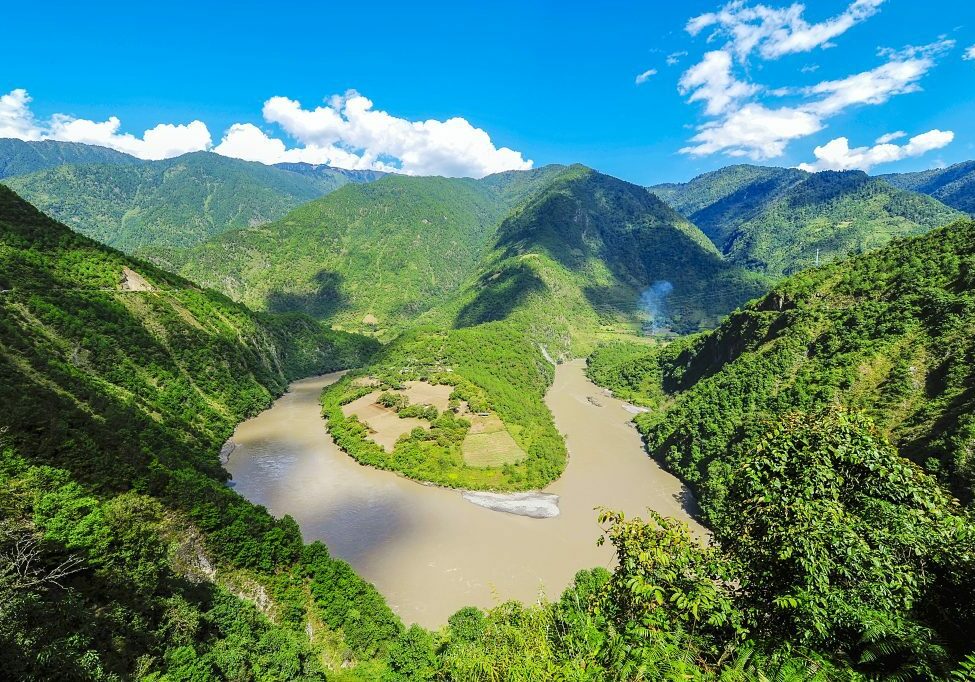
River rescue plan in place
After years of WWF campaigning, a new law will help protect the Yangtze river and its wildlife
